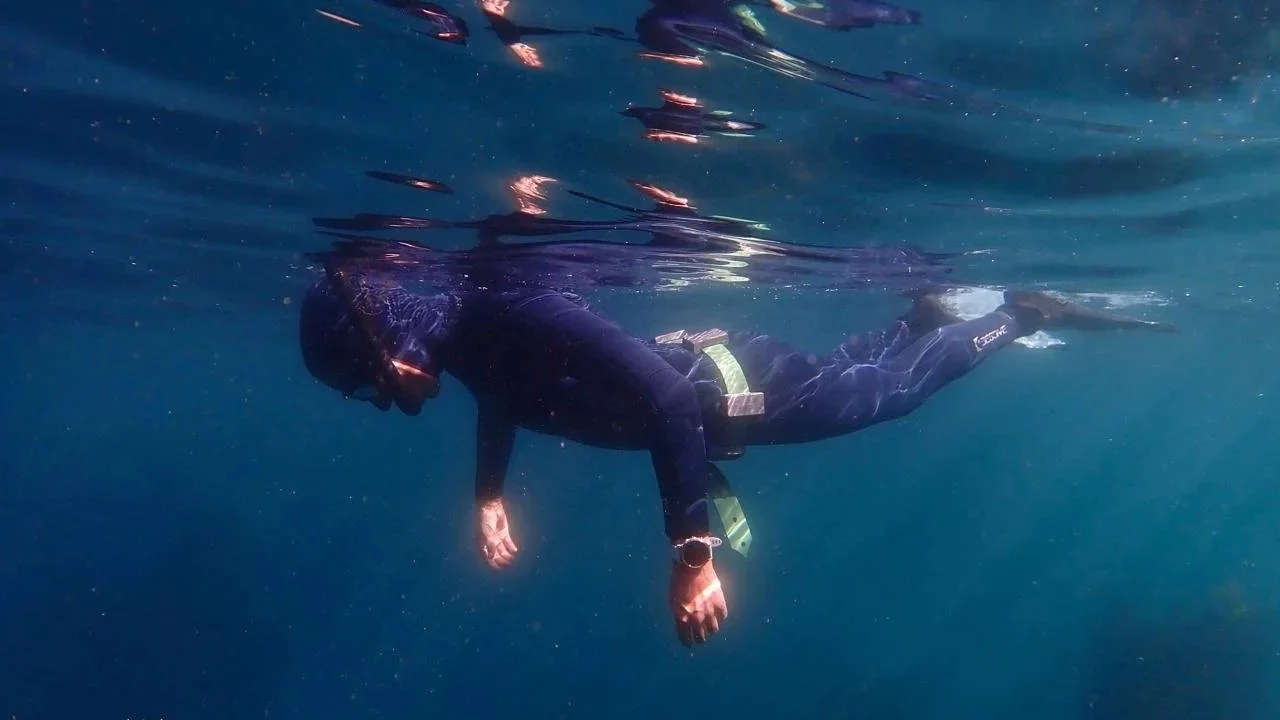Freediving: A Science-Backed Pathway to Nervous System Regulation
In today’s world, our bodies weren’t designed for hours at screens, constant notifications, and the pressure to “always be on.” Chronic stress keeps our nervous systems stuck in high alert, leading to burnout, anxiety, and patterns of trauma held in the body.
Freediving offers a natural reset. It’s more than a sport—it’s a practice that taps into ancient biology, teaches calm under pressure, and reconnects us with the rhythm of nature.
The Mammalian Dive Reflex: Nature’s Built-In Calm Button
Every mammal, including humans, carries the mammalian dive reflex. The moment your face touches water and you hold your breath, your body instinctively:
Slows the heart rate
Redirects blood flow to vital organs
Activates the parasympathetic nervous system, the “rest and recover” mode
Research shows that trained freedivers develop stronger vagal tone, meaning their bodies can shift from stress into calm more easily than those who don’t dive (Royal Society, 2023).
Cold Water Immersion: A Natural Nervous System Reset
Cold water triggers the vagus nerve, which helps regulate heart rate and signals safety to the body. Clinical studies confirm that cold immersion can reduce symptoms of anxiety and depression. Freediving naturally integrates this effect, giving every dive a built-in nervous system downshift from stress to calm.
Breath-Hold Training: Building Resilience
Holding your breath brings rising CO₂ levels, a natural stressor. Gradual, safe practice teaches the body to stay calm under pressure, expanding the window of tolerance—your ability to remain steady even when life feels overwhelming.
Research demonstrates that regular breath-hold practice improves parasympathetic activity and reduces stress reactivity, rewiring the body for resilience (Schagatay, 2011).
Picture: Yvette Oosthuizen
Interoception: Reconnecting with Your Body
Freediving enhances interoception—the ability to sense and interpret internal body signals. Studies of freedivers show improvements in confidence, emotional regulation, and resilience. By learning to notice subtle shifts in the body, freedivers respond with calm instead of reactivity, rebuilding trust in their own signals (Elaine Hicks, LCSW).
Why Freediving Supports Trauma Recovery
Trauma lives in the body, often showing as hyper-alertness, restlessness, or disconnection. Freediving helps the nervous system learn new patterns of regulation through:
Regulation under stress: staying calm with rising CO₂
Cold water immersion: activating parasympathetic healing responses
Embodiment and interoception: rebuilding trust in body signals
Flow states: diving naturally induces joy, clarity, and presence
It’s a somatic, body-based practice that aligns with modern trauma-informed approaches to healing.
The Wild Within Approach
At Wild Within, freediving is not about performance—it’s a teacher. Our retreats help you:
Calm your nervous system naturally
Expand resilience and your window of tolerance
Reconnect with your body’s wisdom
Experience stillness, flow, and the magic of the ocean
Through guided breathwork, mindful diving, and immersion in nature, you’ll leave not only inspired but rewired—better able to meet life with clarity, calm, and strength.
Final Thoughts
Freediving is more than a sport. It’s an ancient, science-backed pathway to presence, resilience, and wellbeing. In a world where stress and burnout are the norm, it offers a rare chance to pause, breathe, and let nature restore you.
If you’re ready to experience this for yourself, check out our next retreat. Step into the ocean, and discover how freediving can help you reset, reconnect, and rise stronger.
Our next retreat: HERE

